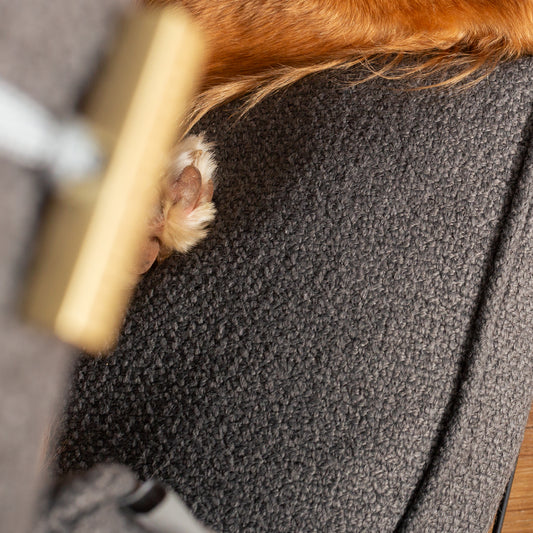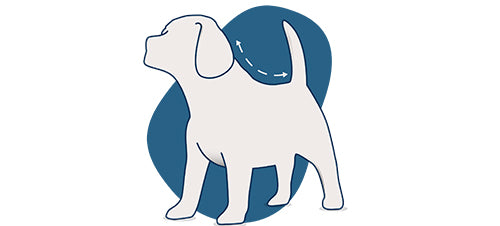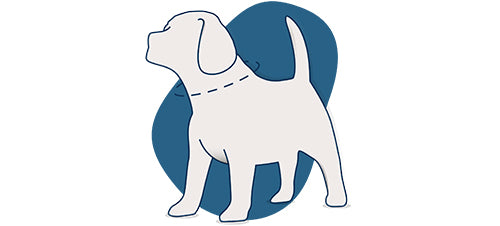As pet owners, understanding the sleep requirements of our canine companions can help us provide the best care possible. And ensuring our dogs get the right amount of sleep is so important for their overall health and general wellbeing. Here at Lords & Labradors, we've looked into the sleep needs of dogs at different life stages, from puppies to senior dogs, answering common questions such as how much sleep do dogs actually require? and how long do dogs (and should dogs) sleep at night?
Understanding Dog Sleep Patterns
Dogs, much like us humans, have varying sleep needs based on their age, activity level, and overall health. However, unlike humans, dogs' sleep patterns include several shorter cycles rather than one long stretch of sleep.
How Much Sleep Do Dogs Require?
On average, our dogs need between 12 to 14 hours of sleep per day. This amount can fluctuate based on several factors:
- Age: Puppies and senior dogs tend to sleep more than adult dogs.
- Breed: Larger breeds often need more sleep than smaller breeds.
- Activity Level: Highly active dogs may require more rest to recover from their physical exertions.
How Long Do Dogs Sleep at Night?
Most dogs tend to sleep around 8 to 10 hours at night, with additional naps during the day to meet their total sleep requirements. Unlike humans, dogs have a polyphasic sleep pattern, meaning they sleep multiple times throughout a 24-hour period. This pattern allows them to stay alert and respond to their environment more quickly.

Sleep Requirements by Age
How Long Should Puppies Sleep?
Puppies are in a critical growth phase, which requires a significant amount of rest. On average, puppies need 18 to 20 hours of sleep per day. This extensive sleep helps support their rapid physical development and learning processes. Ensuring a quiet and comfortable sleeping environment is essential to support healthy growth and development in puppies.
How Many Hours Sleep Does an Adult Dog Need?
Adult dogs typically require 12 to 14 hours of sleep per day. This includes night-time sleep and several day-time naps. Active breeds or working dogs may need slightly less sleep, around 10 to 12 hours, due to their higher energy levels and physical activity. However, it's crucial to monitor your dog's behaviour and adjust their rest time based on their individual needs.
Senior Dogs
Senior dogs, much like puppies, often need more sleep than adult dogs. They may require 14 to 18 hours of sleep per day. Aging dogs experience changes in their metabolism and activity levels, making additional rest necessary for maintaining their health and wellbeing.
Factors Influencing Dog Sleep
Health and Medical Conditions
Dogs with certain health conditions may require more sleep. Conditions such as arthritis, diabetes, and hypothyroidism can increase fatigue and the need for rest. Regular veterinary check-ups can help identify and manage these conditions, ensuring your dog gets the appropriate amount of sleep.
Diet and Nutrition
A balanced diet is essential for maintaining your dog's energy levels and overall health. Poor nutrition can lead to lethargy and increased sleep requirements. Consult with your veterinarian to ensure your dog's diet is meeting their specific needs.
Environment
Creating a comfortable sleeping environment is vital for ensuring quality sleep. Choose a quiet, cosy space with a comfortable bed suited to your dog’s size and needs. Consider orthopaedic beds for senior dogs or dogs with joint issues to enhance their comfort.
Exercise and Activity
Regular exercise is crucial for maintaining your dog’s physical and mental health. Adequate physical activity helps regulate sleep patterns and prevents behavioural issues caused by excess energy. However, be mindful of not overexerting your dog, especially in extreme weather conditions. If you're unsure of when you're able to walk your dog in hot weather, you can read our helpful guide here.
Signs of Sleep Problems in Dogs
Monitoring your dog’s sleep habits can help identify potential health issues. Look out for signs such as:
- Excessive Sleeping: While dogs sleep a lot, an increase in sleep duration beyond normal could indicate health problems.
- Restlessness: Difficulty settling down or frequent waking during the night may signal discomfort or anxiety.
- Changes in Sleep Patterns: Sudden changes in your dog’s sleep routine can be a sign of underlying health issues.
If you notice any of these signs, consult your vet to rule out medical conditions and receive appropriate advice.

Tips for Improving Your Dog's Sleep
Establish a Routine
Dogs thrive on routine. Establish regular times for feeding, exercise, and sleep to help regulate your dog’s sleep patterns.
Create a Comfortable Sleep Environment
Provide a designated sleeping area that is quiet, comfortable, and free from disturbances. Invest in a high quality bed that supports your dog’s joints and overall comfort.
Ensure Adequate Exercise
Regular physical activity is essential for tiring your dog out and promoting restful sleep. Adapt their exercise routine to your dog’s age, breed, and health condition.
Monitor Diet and Nutrition
Feed your dog a balanced diet to support every aspect of their health and energy levels. Avoid feeding them large meals right before bedtime to prevent discomfort.
Understanding how much sleep dogs require and tailoring their environment and routine to meet these needs is crucial for their health and well-being. By paying attention to their specific needs at different life stages and creating a comfortable sleep environment, you can ensure your dog enjoys restful and rejuvenating sleep. At Lords & Labradors, we offer a range of high-quality beds and sleep accessories designed to cater to the unique needs of dogs at every stage of life. Give your furry friend the gift of good sleep and watch them thrive.




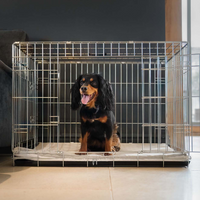





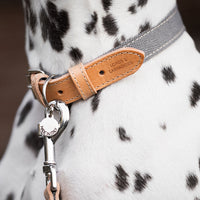





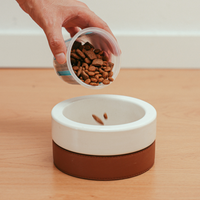
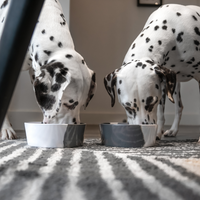




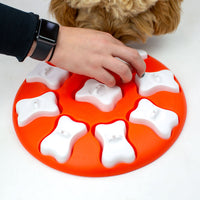







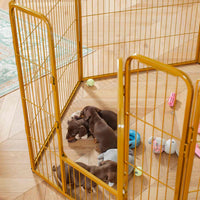
















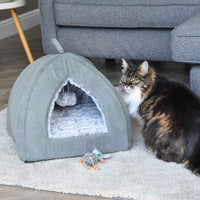









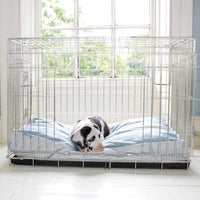




.jpg?v=1720435674482&options=)



































